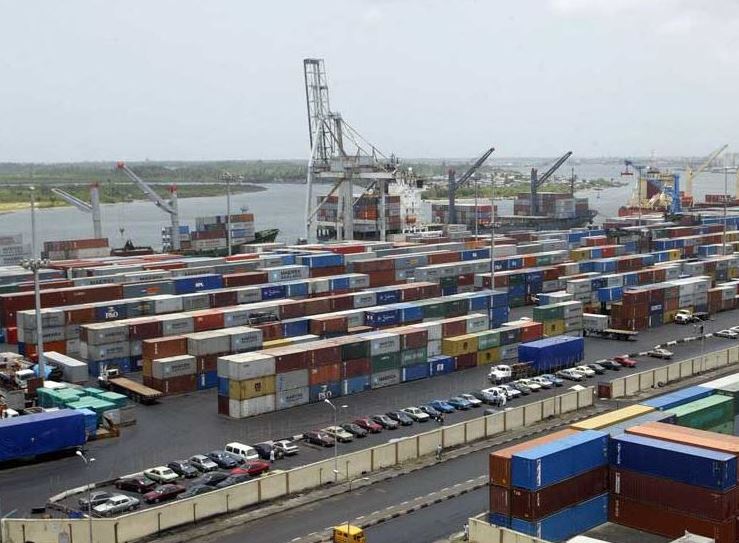President Muhammadu Buhari on Tuesday directed the Nigerian Shippers’ Council (NSC) as the economic regulator of ports to produce a viable blueprint for maximum exploitation of the economic potentials of the maritime industry.
Buhari gave the directive in a message to the 14th Maritime Seminar for Judges in Abuja.
The President was represented by the Solicitor-General of the Federation, Mr Taiwo Abidogun.
According to the President, having an economic regulator at this critical time of economic downturn is imperative to encourage transparency in economic activities, enhance revenue generation and boost patronage of our seaports.
He called on both the judiciary and the legislature to lend support to the reform of the maritime sector of the nation’s economy.
“For us to achieve maximum productivity and efficiency in the maritime industry, we must get rid of fraudulent and corrupt practices in the industry.
“Corruption increases cost of doing business, destroys ease of doing business, distorts processes and procedures, robs government of legitimate revenue and gives the country a bad image,’’ Buhari said.
He said, “ We cannot afford to perpetrate the cases of mismanagement and squander of national resources which we have witnessed in some of our institutions in the maritime sector.’’
Buhari said that the time for a paradigm shift “is now and in line with our agenda for a corruption-free society”.
The President said that his administration would encourage and enforce discipline and sanity in the maritime sector.
He noted that the maritime sector had also been bedeviled by challenges of criminals and unpatriotic elements through crimes like illegal bunkering, vandalisation of maritime facilities, especially related to oil and gas sector.
The President also talked about piracy and other forms of armed attacks in the Gulf of Guinea as well as attacks on security personnel manning the waterways.
He also mentioned corruption between supervising officials and criminals on the nation’s waterways.
Buhari said that he had given the appropriate directives to the necessary authorities that the nation’s waterways remain safe and conducive for international and domestic trade and commerce.
“For us to have a robust and efficient judicial system to support our economic development, judges should be abreast of all contemporary development in the maritime industry,’’ the News Agency of Nigeria (NAN) quotes him as saying.
The Chief Justice of the Federation, Hon. Justice Mahmud Mohammed, said that with a predicted increase in the future volume of global trade, “there is no doubt that the future presents infinite possibilities and also attendant risks and challenges to operators and the judiciary’’.
He said that, “As dispensers of justice, the judiciary must be informed of the trends in the maritime sector in order to properly act as an arbiter of disputes and determinant of rights as are germane to the sector and its stakeholders.’’
According to Mohammed, the seminar had over the years contributed immensely to deepening synergy between the Judiciary and the maritime sector, thus strengthening our jurisprudence.
He, however, said that ti was essential for both the judiciary and the maritime sector to partner to create a suitable condition that would facilitate trade and investment.
A former Head of State, Chief Ernest Shonekan, who was Chairman of the seminar, said that the seminar was organised to keep the Judiciary abreast of contemporary issues in maritime law.
Shonekan said that the consistency of the seminar, the high caliber of speakers and participants had lifted the status of the seminar and gave it international image.
He said that the fact that the seminar had over the years drawn participants all over the world, was an eloquent testimony of its international acceptance.
The former head of state said that the experience gathered frogyc3m the seminar had helped judges to reduce the length of time spent on admiralty cases of arrests and detentions of ships.
Shonekan said that every effort must be made to sustain the seminar and make it an annual event instead of biennial.
The Minister of Transportation, Mr Rotimi Amaechi, said that the importance of quick and efficient handling of maritIme matters by courts could never be over-emphasised.
Amaechi said that “`It is commendable that the seminar has created a veritable forum where prominent jurists and legal luminaries come together to rub minds on how to enhance the competitiveness and economic viability of our maritime industry through the capacity building of the judicial officers.’’
“I am therefore glad to note that gathering among us of eminent jurists, judges and justices of superior courts of cords in Nigeria and other countries in the West African sub-region (Gambia, Sierra Leone and Ghana).
“Since its inception in 1995, over 500 judges and justices of superior courts of record both Federal and States have participated and benefitted from the seminar, NAN quotes the minster as saying.
He noted the role of the seminar in influencing far-reaching policy directions of government in the maritime and transport sectors.
The minster suggested that maritime law should be introduced and made a compulsory course of study in institutions of higher learning, adding that the Nigerian Shippers’ Council should ensure the realisation of this objective.
The Executive Secretary of the NSC, Mr Hassan Bello, said the council would ensure that Admiralty law is made a compulsory subject in institutions of higher learning.
Bello thanked the chief justice of the federation for his interest in developing admiralty law, adding that “in the National Judicial Institute, found a worthy collaborator”.
He said that the Administrator of the NJI, Hon. Justice R. P.Bozimo, was worthy of acknowledgement and laudable for her administrative ingenuity.

